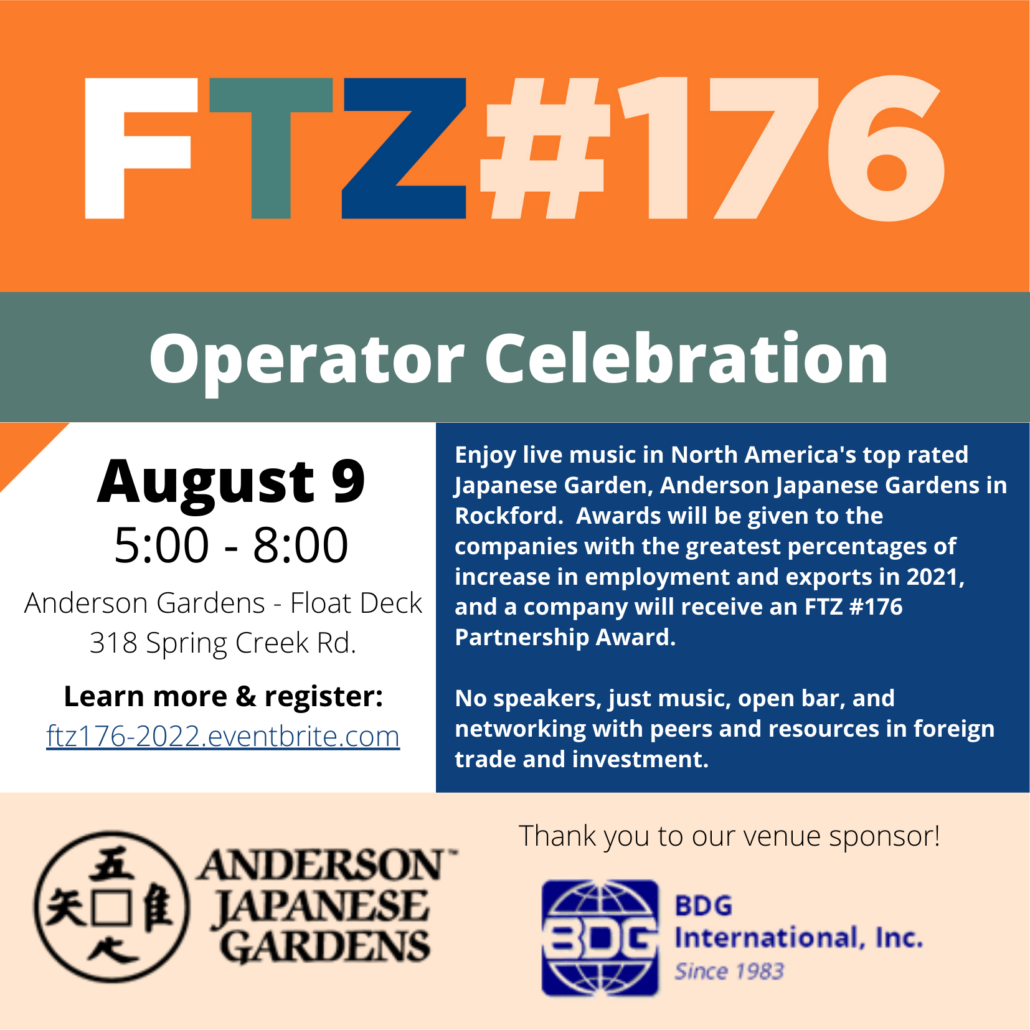FTZ #176: Our History and our Partners
Foreign Trade Zones tend to be pictured as warehouses on airport property, a third-party warehouse where companies can store imported inventory to defer and reduce import tariffs.
While FTZ #176 was first established by the Greater Rockford Airport Authority, its growing number of partners now span industries and manufacturing across an 11-county region in northern Illinois.
For the past 31 years, FTZ #176 has encompassed the Northern Illinois region that spans Stephenson to McHenry Counties from West to East, and the Wisconsin Stateline to Lasalle/Peru from North to South. Businesses within that zone are able to activate their facility, at their current location, as an FTZ site or subzone and access the tax benefits that come with it.
That’s a boon for manufacturers, who are struggling with global supply chain holdups due to congestion at ports of entry, high tariff rates, inflation and instability in Eastern Europe. By operating within the FTZ, companies can bring the customs clearance process in-house and in doing so, offset some of that ongoing uncertainty and cost.
The Greater Rockford Airport Authority was on the ground floor of establishing FTZ #176 back in 1991, in an effort to help local manufacturers who utilize the airport for transporting goods. At the time, Chrysler’s Belvidere Assembly plant was among the first approved FTZ operators in the region. It maintained that status until 1997, and the zone was dormant until 2003.
Since that time, zone operators across Northern Illinois have begun taking advantage of FTZ opportunities in growing numbers. They’ve found it leads to improvements in their inventory management systems, such as reducing inaccurate inventory and improving product tracking. Likewise, they can save between one and three days’ worth of holdup at the port of entry as their product waits on processing and inspection. With prior customs approval through the FTZ, no one needs to wait for a customs inspector to break the seal or open a package. Instead, inventory gets moved along the process quickly.
At present, FTZ #176 has a collection of partners throughout Northern Illinois, including:
- Bergstrom Inc.
- Brake Parts Inc. LLC
- Cellusuede Products Inc.
- Chicago Importing Company
- Leading Americas Inc.
- Mitsubishi Logisnext Co., Ltd.
- PCI Pharma Services
- Schenker
- Staal & Plast USA, Inc.
Activating your facility as an FTZ can you save your company both time and money. Learn more about how FTZ #176 can impact your bottom line and improve delivery times by contacting Carrie Zethmayr, FTZ Administrator at (312) 221-1115, emailing at carrie@zethmayr,com or visiting https://ftzrockford.com/ and https://flyrfd.com/.


